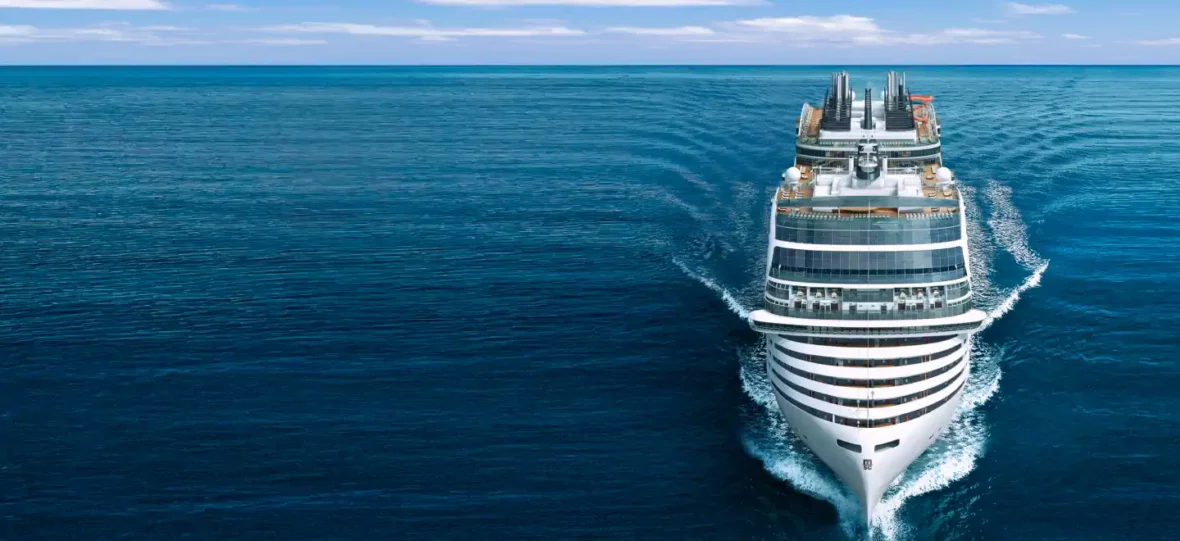The HELENUS consortium consists of ten participants based in six different European countries, including six industry partners, two research institutes, and two SMEs. The industry partners comprise of a fuel cell developer, a system integrator, two ship designers, a ship owner and a classification society. Through coherent involvement and interaction between various sections of the maritime industry, HELENUS will enable the seamless integration of the next-generation fuel cell module within a cruise ship.
German Aerospace Centre (DLR)
DLR is a German research institution with extensive experience in aerospace, transportation, and energy research. DLR is coordinating the HELENUS project, and is also responsible for project management and dissemination of research findings. Technically, DLR will contribute to WP3 focusing on modelling and algorithm development. Further, DLR also leads WP4 where they will demonstrate a 100 kW SOFC system in their laboratory over different maritime duty cycles, and using renewable fuels.
Alma Clean Power
Alma Clean Power specializes in the development of large-scale energy systems including fuel cells, and brings to the consortium its world-leading expertise in developing high-power SOFCs for maritime applications. Their ongoing activities in the development of multi-MW systems enable them to develop an integrated maritime SOFC solution amenable to future scale-up. Alma will lead WP2 and all activities on SOFC system development and integration. Alma will develop the 500 kW SOFC demonstrator for installation in the cruise ship, as well as the 100 kW module for laboratory testing of transient operation and renewable fuels.
Wärtsilä
Wärtsilä is a global leader in innovative technologies and lifecycle solutions for the marine and energy markets. Wärtsilä has ongoing acitivites in the electrical integration of high power SOFC systems in maritime applications, significantly, with Alma Clean Power. Their expertise of electrical conversion systems, particularly with Alma’s SOFC modules, enable them to contribute to the full electrical integration of the SOFC module onboard the cruise ship. Wärtsilä will contribute to WP2 and WP5 with energy management control for the SOFC and onboard electrical integration.
Chantiers de l’Atlantique
Chantiers de l’ Atlantique (CdA) is one of the world leaders on the markets of highly complex ships and offshore installations. CdA brings its strong experience overall in cruise ship specifications, design and integration of complex equipment, as well as its sea-proven energy optimization capabilities. CdA is contributing primarily to WP 2, 5 and 6, and is designing and building the ship that the HELENUS SOFC will be demonstrated in. CdA will also provide technical specifications for the ship architecture (ship implementation and interfaces, safety issues, energy and thermal simulation), integrate the SOFC module into the ship, and contribute to case-studies to study the further scale-up of SOFCs in cruise ships.
IHC
IHC MTI is the knowledge centre of Royal IHC with expertise in the design of complex work vessels such as dredging and offshore vessels. This includes the design and integration of complex equipment and optimization of vessel designs for energy efficiency and emissions with its experts and dedicated expert tools (i.e. dynamic simulation models, LCPA, transient load analysis tools and fuel consumption tools). IHC will lead and mainly contribute to WP6 and provide its knowledge of complex vessels and dynamic modelling to other WPs.
Bureau Veritas Marine & Offshore
Bureau Veritas (BV) is a leading Classification Society with knowledge and expertise in safety assessment and compliance for ships using alternative fuels having to comply with SOLAS Convention and the IMO IGF Code or the Inland Navigation Regulations framework. BV has already developed Guidelines for Fuel Cell Systems onboard commercial ships and an additional class notation fuelcell. BV will contribute mainly to WP 2, 5 and 6 with teams of experienced engineers in ship systems safety evaluation.
MSC
MSC is one of the world’s largest operators of cruise ships in the world, and has been one of the leaders in adopting cleaner fuels such as LNG in the maritime market today. As ship owners, MSC will operate the demonstrator onboard their ship during the field-testing phase in WP5, and in the subsequent exploitation phase after the end of the project to further develop the technology to TRL8 by 2028-2029. Being the end-user, MSC’s participation enables the inclusion of “voice of customer” during the development efforts within the consortium, thereby enabling the demonstrator to be nearly market-ready by the end of the project.
Delft University of Technology
Delft University of Technology (TU Delft) is one of the leading universities in the world, with the Faculty of Mechanical, Maritime and Materials Engineering currently ranked 7th globally. TU Delft has extensive experience and strong publication record in SOFC systems for maritime applications, including the GASDRIVE and NAUTILUS projects. TUD will lead WP3, and collaborate with DLR in transient modelling and control of SOFCs under maritime conditions, as well as studying the fuel flexibility of an SOFC stack. The models and algorithms developed by TUD will be used by DLR in WP4, CdA in WP5, and IHC in WP6.
BALance Technology Consulting
BALance Technology Consulting (BAL) demonstrates expertise in Lifecycle Performance Analysis (LCPA), which enables the assessment of economic as well as environmental footprint over the lifecycle of a product. BAL will lead WP7 and WP8, and also closely contribute to WP6, by performing LCPA of next-generation maritime energy systems with both fossil and climate-neutral fuels, and together with IFEU (described below), present a roadmap for future scale-up and market uptake of the developed demonstrator.
IFEU
IFEU has expertise in lifecycle analysis (LCA), allows modelling of complex material flows and illustrates all environmental impacts potentially associated with each material flow. LCA is especially important in the face of carbon-neutral fuels, as the processes in the generation/extraction and transportation of fuel has a major impact on the carbon footprint of the fuel. IFEU will participate in WP7 and WP8 to perform lifecycle analysis of a wide range of alternative fuels applicable to the maritime industry.
